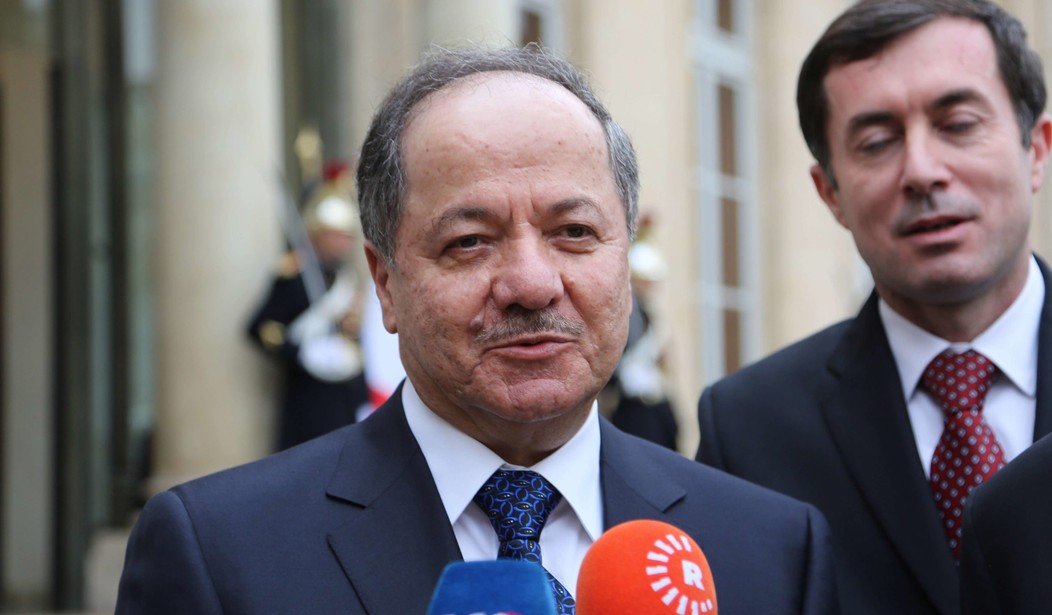The Kurdistan Regional Government (KRG) will hold a referendum on independence on September 25, 2017. By all accounts, the majority of Iraqi Kurds under the umbrella of the KRG would vote for independence.
This would make Iraqi Kurdistan the 196th sovereign state. In terms of fairness and justice, it is long overdue, given the lack of self-determination for 40 million Kurds in the wider region, and the approximately 5.5 million Iraqi Kurds.
Naturally, all of the neighboring states — Iran, Iraq, Syria, and Turkey — have had a pact among them to prevent the creation of a Kurdish state. They fear that any Kurdish independence would inspire their own restless Kurdish minorities to join the newly establish Kurdish state. The Kurds in Turkey account for about 20% of Turkey’s 80 million plus people. In Iran, the Kurdish population is the third largest component after the Persians and the Azeris. The Kurds comprise 10% of Iran’s population of over 79 million. In Syria, Kurds number approximately 2.5 million out of a total population of 17.6 million. In all of the countries listed above, the governments are known to have deliberately undercounted the Kurdish population.
Sadly, U.S. administrations have hung on to the erroneous policy that Iraq must be maintained in its current form as a “united” Iraq. Yet Iraq, like neighboring Syria, is a fractured entity that combines ethnic and religious groups that do not wish to stay together. The U.S. policy has been wedded to a non-existent reality.
The colonial powers of Britain and France concocted — under the Sykes-Picot agreement (1916) — the outrageously mismatched entities/states of Iraq and Syria. They did not take into consideration the interests of the local populations, but rather sought to advance their own political and economic interests. It put under the same roof Sunni-Muslim Arabs (led by the Hashemite King Feisal of the Hijaz in Saudi Arabia), who ruled over a Shiite-Muslim Arab majority, and added into the mix the Northern Kurdish area with its oil deposits in Kirkuk. Although most Kurds are Sunnis, they are not Arabs, and they have always been discriminated against by the Arab regimes in Iraq and Syria.
It is incomprehensible why the previous U.S. administrations would side with the regime in Baghdad, and not with the pro-American and pro-Western Kurdistan Regional Government. For all intents and purposes, it is already an independent entity with its own government ensconced in the capital of Erbil, with its own parliament, flag, and army.
The Baghdad government, led by Prime Minister Haider al-Abadi, is doing Iran’s bidding, and its powerful Shiite militias are more loyal to the Ayatollah Ali Khamenei, Iran’s supreme leader, than to the Iraq government. They are more likely to side with Iran rather than the U.S. if and when an open conflict between the U.S. and Iran occurs.
To understand the advantages for the U.S. and its allies should an independent Kurdish state arise in northern Iraq, this reporter asked Sherkoh Abbas, president of the Kurdistan National Assembly, to explain them:
An independent Kurdistan will bring to a halt the creeping Shia Crescent. Saudi Arabia and other Sunni Gulf states have recently started to view an independent Kurdistan in a positive light. They view it as a way to confront Iranian aggression in the Middle East. These Sunni-Arab states are willing to accept a divided Iraq and Syria, becoming a buffer against Iran and the new emerging neo-Ottoman threat from Turkey, which seeks to replace Saudi Arabia as the leader of the Muslim world.
…
In the past, U.S. Congress would remind us of the vital economic interests the U.S. has with 21 Arab nations, not to mention Turkey as a NATO ally. However, the new developments in the Arab world should convince many in the U.S. Congress and the Trump administration that supporting an independent Kurdistan would bring stability to the region, and reduce two major threats from Iran and Turkey. Moreover, the Kurds in both Iraq and Syria have been and continue to be the most effective fighting force against the Islamic State.
…
Two years ago, the Arab world opposed the idea of splitting the “Arab lands” of Iraq and Syria. Now however, they know that if they keep these two countries whole, it would disadvantage and undermine the Saudi kingdom and benefit Iran. It is for this reason that the moderate Sunni states think it is good to let the people of these nations (Iraq and Syria) go their own way.
It is also important to note that the U.S. does not need American boots on the ground in order to confront Iranian aggression in the Middle East. A good portion of Iran’s Islamic Republic is comprised of large minority groups such as the Azeris, Balochis, Kurds, and Ahwazi Arabs. These groups are capable of waging an uprising against the Iranian regime, and could help collapse it from within. As the Iraqi and Syrian Kurds unite to form an independent state, the U.S. will be able to use an independent Kurdistan as its Middle East base in the struggle against international terrorism. Finally, America should support an independent Kurdistan because it is the right and moral thing to do.
…
Turkey, Iran, Iraq and Russia appear to have agreed upon crushing Kurdish aspirations, while at the same time undermining the U.S. and its allies in the region. It is therefore time for the U.S. to support an independent Kurdistan and a confederation of Iraqi and Syrian Kurds.
The Treaty of Sevres (August 1920), signed by the Ottoman government, provided for a Kurdish state. It was then superseded by the Treaty of Lausanne in 1923. All the promises to the Kurds were nullified. Kemal Ataturk annexed the Kurdish area. The Soviets, for their own reasons and interests, helped the Kurds in Iran establish an independent entity called the Republic of Mahabad in 1946, but less than a year later it was crushed by the Shah of Iran. Iraqi Kurds have been struggling for autonomy since the 1930s.
In March 1970, the Iraqi government and the Iraqi-Kurdish parties agreed to a peace accord. It granted the Kurds autonomy. The accord also recognized Kurdish as an official language and amended the Iraqi constitution to state: “The Iraqi people is made of two nationalities, an Arab nationality and a Kurdish nationality.”
On March 16, 1988, over 6,800 Kurdish civilians died in a poison gas attack on the town of Halabjah. The attack was initiated by the Iraqi-Arab dictator Saddam Hussein. A Kurdish uprising against Saddam Hussein in March 1991, encouraged by the U.S. administration, ended up with Saddam Hussein unleashing his army against the Kurds. The U.S.-led forces refused to intervene to support the rebels, resulting in 1.5 million Kurds fleeing before the Iraqi onslaught.
The Kurds, unlike the Palestinians, have not been coddled by the United Nations or the European Union, nor do Western leftists groups wage demonstrations on behalf of their self-determination. Yet, unlike the Palestinians, they are a distinct people with their own language and culture. Also, the Kurds, unlike the Palestinians, have supported the U.S. fight against Islamic terror.
The Kurdish people have earned the right to self-determination and an independent state.









Join the conversation as a VIP Member